 Filling in the space (and the suit)
Filling in the space (and the suit)Colin Firth on fear, fashion and Tom Ford...
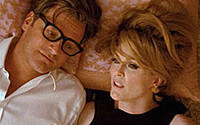
With Julianne Moore in A Single Man
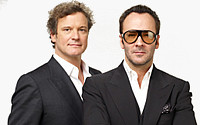
Sharply dressed with Tom Ford
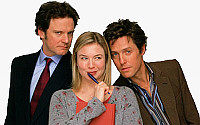
With Renee Zellweger and Hugh Grant in Bridget Jones
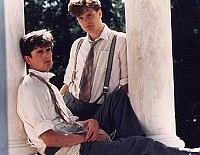
With Rupert Everett in Another Country
COLIN FIRTH
10 Sep 1960, Grayshott, Hampshire











 Since 1984, Colin Firth has been delivering first-rate performances in films and television programmes all over the world. Even before his breakthrough role in the 1995 BBC production of Pride & Prejudice, he'd had notable leading roles in Another Country and Milos Forman's Valmont. Not to mention starring roles in the likes of The English Patient, Fever Pitch, Shakespeare in Love, both Bridget Jones movies, and as Vermeer in Girl With a Pearl Earring. After singing through the mega-hit Mamma Mia in 2008 and being digitally altered in Robert Zemeckis' A Christmas Carol in 2009, he earned his first Oscar nomination (and a shelf-full of other awards) for Tom Ford's debut film A Single Man, based on the Christopher Isherwood novel. He stars as George, a university professor in 1962 Los Angeles struggling with grief after the death of his lover.
Since 1984, Colin Firth has been delivering first-rate performances in films and television programmes all over the world. Even before his breakthrough role in the 1995 BBC production of Pride & Prejudice, he'd had notable leading roles in Another Country and Milos Forman's Valmont. Not to mention starring roles in the likes of The English Patient, Fever Pitch, Shakespeare in Love, both Bridget Jones movies, and as Vermeer in Girl With a Pearl Earring. After singing through the mega-hit Mamma Mia in 2008 and being digitally altered in Robert Zemeckis' A Christmas Carol in 2009, he earned his first Oscar nomination (and a shelf-full of other awards) for Tom Ford's debut film A Single Man, based on the Christopher Isherwood novel. He stars as George, a university professor in 1962 Los Angeles struggling with grief after the death of his lover.
Obviously this is a period film. But do you see its view of a gay man in society as something from the past, or is it still relevant?
I don't feel, frankly, that all that much has changed. Obviously it's on a state-by-state basis in America but the whole business of gay rights is shifting there all the time. Interestingly, we were actually filming on the day when Proposition 8 was passed in California, which essentially rescinded gay marriage rights. And this was the same day actually that Barack Obama won the election.
And the story is set during the Cuban Missile Crisis, which echoes in our own climate of fear.
Yes, there's that theme of fear running through it, which George talks to his students about. I think it's very much alive today. It's a marketing tool and a political tool; I think it's how governments get things done. That's what Naomi Klein talks about in The Shock Doctrine. If you frighten people enough to can get any legislation through, you can make them put with the Patriot Act or Guantanamo or the invasion of a country that should be left alone. Or indeed giving up your civil liberties, or putting up CCTV cameras everywhere. People are prepared to accept all that if they're frightened.
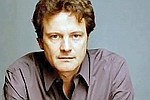
Fear is a
marketing tool and
a political tool
That's a very difficult one to answer. I don't think LA's changed that much, really. This character happens to be gay, but although George is struggling with a lot, he's certainly not struggling with his sexuality. Isherwood's characters don't seem to. So I don't know what it would have done to the film if you'd have set it in the present. You take the Cuban Missile Crisis out and put something else there, like the fear of terrorism, it's actually rather an interesting question. I think there's something about the characters of George and Charley [Julianne Moore] that just feels right in 1962. There's something about their whole cultural reference points that feel of that generation. But I think you could have updated it quite easily frankly. I just wouldn't have looked as good.
Yes, of course Tom Ford makes the film look great, but he also delivers strong characters.
He used all the skills that I think he'd developed as a designer. As he'll tell you, in his other job he has to have a vision and he has to be able to communicate that. He has to be able to marshal people and inspire them to share it and do what you want them to do. Those are very much the skills that are required to direct a film too. He also has an extraordinary instinct for picking the right people to do the jobs he wants, whether it's a designer or a make-up person or his cast. But I do think there was an emotional cost to him with this. He's not just proving that he can do it; I feel there's a lot of him in the story.
How did he relate to his actors on set?
He didn't give me any verbal instructions really, ever. It was just very clear what was required once we were up and running. When I read the script there was a lot of space to be filled in; there was a lot of stuff without words, but once we were doing it it seemed terribly clear what each moment should be about really. Tom didn't really need to fling instructions around. I could tell by the room that we were filming in what the mood was - I could see what was on the page, I could tell something by what I was wearing. People comment on the visual beauty of it. I didn't really notice it as beautiful particularly, it just seemed to be an inevitable part of this world.
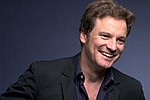
When I read the script there was
a lot of space to
be filled in
Yes. That beautiful house is something that Tom looked very, very hard for. He wanted it to be the place that George had chosen, because he wanted it to be cosy. But if the scene is me sitting there alone, listening to a phone ringing with a cup of coffee in front of me and the camera outside the window looking in at this lonely man, you don't need a director to say, "OK, this is about loneliness". I just think that's brilliant directing.
Did you know that the colours on-screen would be warming up when George had moments of clarity?
He might have mentioned it, but it certainly wasn't something he troubled us with. I believe he always intended to do that, but some of those decisions he came to afterwards. I like the effect. If you're talking about the interior life of a human being, I think that does help narrate the thing, as does the music.
Did you make any extra effort to look more stylish for Tom when you first met him?
Do you know, you can't get close. You can't match him at his own game, and also I don't think he wants to see a world of Tom Ford clones running around. I know he likes elegance rather than shabbiness. He doesn't like things out of place. People are a bit self-conscious around him, and he does have a way of making people think they're scruffy. But you know, you can feel scruffy in your best suit and tie standing next to him: he's so perfect. I came straight from a film set anyway. I was a bit tired, I was a bit unshaven, and in some really rough looking clothes. And I got the part.
THANKS TO TO ICON • MAY.10
HOME | REVIEWS | AWARDS | NEWS | FESTIVAL | Q&A | ABOUT | TALKBACK